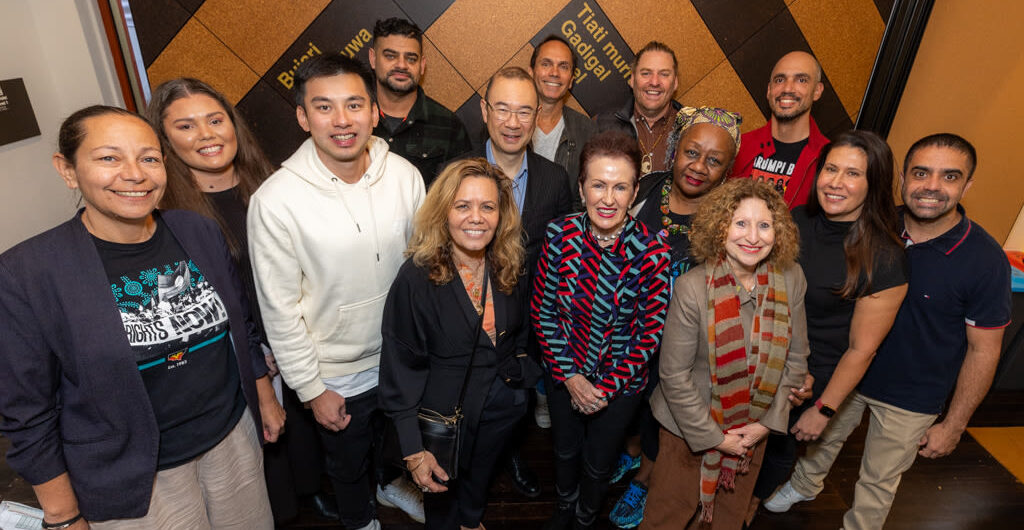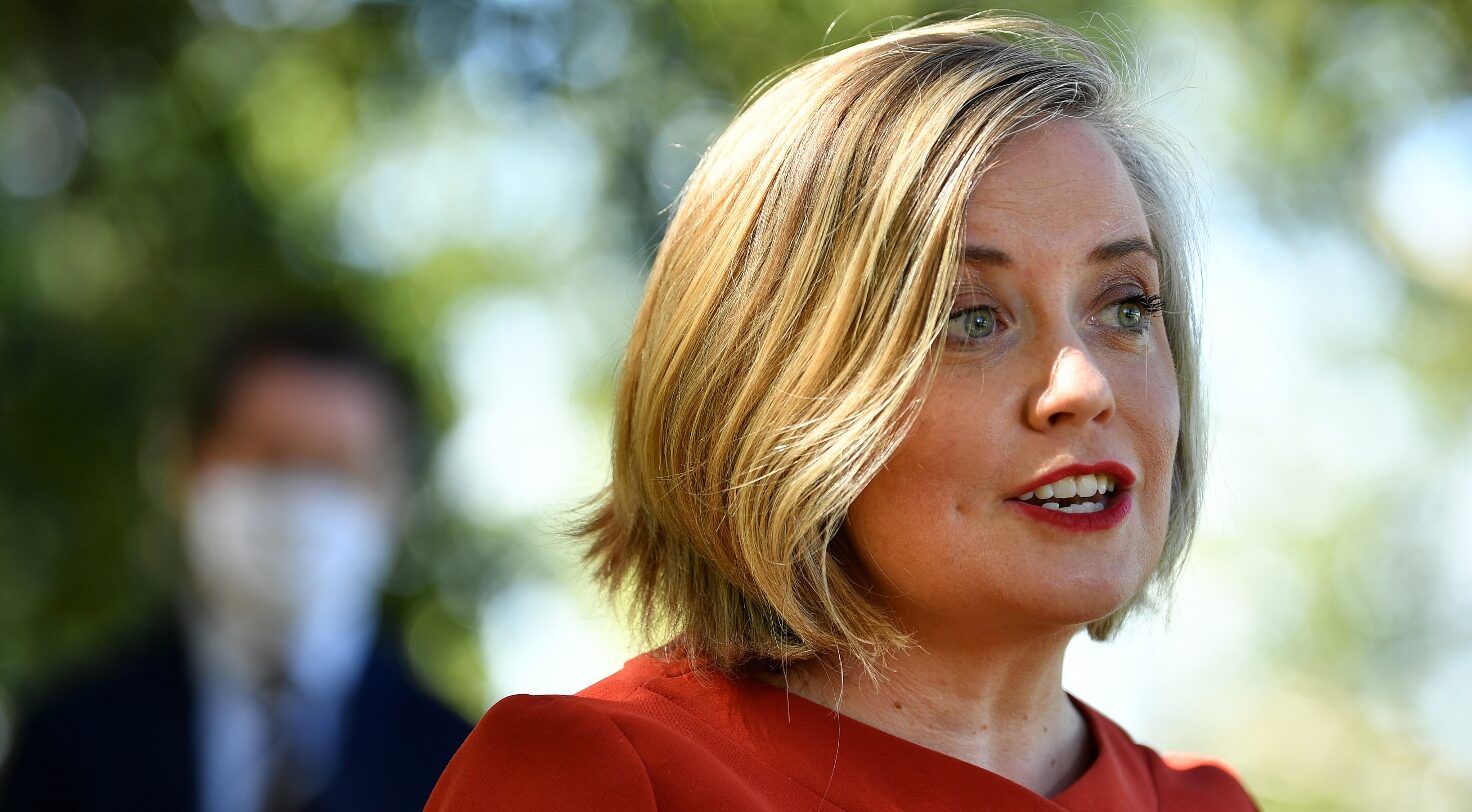

BY BARBERELLA KARPINSKI
Sex worker groups are locked in a stoush battling the Salvation Army, following the release of promotional material which they say increases the stigma around sex workers.
The charity released promotional material about a five year old girl who is the daughter of a sex worker and addict who self mutilates. According to the advertising copy, it is based on a true story.
It is designed to elicit sympathy and donations. No real names or cases are referred to and sex worker advocates not only dispute whether the story is based in reality, but argue that this material causes stigma and discrimination to workers and their families.
Protestors who were aggrieved by the advertisement gathered outside the Salvation Army Corporate Office in Redfern last Thursday June 2. Sex workers and their supporters were angered by the charitity’s negative stereotyping of sex workers and particularly mothers.
Jules Kim, CEO said: “The Salvos had agreed to work with us on a policy for future promotion and for us to hold consultations with our members for this to happen. They had also said they wouldn’t be using anything about sex work without talking to us.”
“We had been continuing on in good faith with the negotiations but obviously their word meant nothing because they have been using this material delivered to households around Australia during their door knock appeal with a detailed case story extrapolating on the offensive material that had been the cause of the issue in the first place. Obviously they must think sex workers aren’t part of the community and won’t see it or that it really doesn’t matter what we think. The material is still online,” she said.
“They were using this during the doorknock campaign during the weekend and many households in Australia received this slipped under their doors …. When it comes to sex workers, obviously the Salvos find it acceptable to continue to lie, stigmatise and exploit us for financial gain.”
In a narrative called “Becky’s Story” the advertisement takes the reader on a journey into the mind of a child of a sex worker. “I know my mother was a prostitute. She’d bring ‘clients” to our house and lock me in the bathroom while she did what she did. I hated that bathroom. There was no way out. The window bustered but up way too high. The toilet stinking of strangers. I hated that bathroom… Find a way to heal my heart. I hated the bathroom…The bathroom my room while mum goes to work in her room. My mother was a prostitute. She’d lock me in the bathroom…”
As well as not adhering to guidelines in the media industry when reporting stories about mental health, self-harm, suicide and vulnerable people, this copy futher stigmatised sex workers and their kids.
According to Cameron Cox, CEO of SWOP: “The Salvation Army has since issued an apology, saying the language included in the advertisement will not be used in future promotional materials.” In an email of May 31, Mr Cox reported that the organisation has claimed that “some direct marketing material had already been distributed – predominantly in QLD, NSW and ACT – and could not be retracted” but [they] “were however, able to retract what we could, which was 2.1 million direct marketing pieces”. Despite this claim, many people I have spoken to in Sydney have received the marketing material.”
There is a big difference between the real lives of sex workers and the media representation. This is a prime example. As part of investigative research exercise, this reporter visited a rural brothel. One mother and sex worker who had been up all night working hard to pay for her family, having a loud conversation at 7 am by phone with her baby sitter, about what should go in the lunch boxes for the day and whether pig tails or plaits were best. The worker was paying a live-in child minder while she was working. The mother was a single parent working to pay both the sitter, the rent and the kid’s education.
Many sex workers commented on social media about the charity’s characterisation of them. “They reflect the level of hurt your campaign generates when sex workers feel they need to justify being a good parent simply because of their occupation”.
Another comment on social media: “Dear Salvos… As a sex worker and parent to five children, I resent the implication that my choice of employment is somehow synonymous with sub-standard parenting. Sex work is valid work, and communicating this fact to my family and friends takes ongoing effort, given the strength of tired stereotypes and assumptions that deserve no place in our community. This being the case, it is extremely disturbing that a major charitable publication would choose appeal to the public in such an uneducated, inflammatory way. I have been a regular visitor to Salvation Army opportunity shops for many years and have always trusted the Salvos name for occasional donations. This will no longer be the case.”
However the damage of increasing stigma has been done and much promotional material is being circulated and there is no way to estimate the harm.
According to the Australian Press Council, revised reporting guidelines on suicide in August 2011 refer to the Mindframe National Media Initiative as a source of information for the reporting of suicide. The APC calls on the press to continue exercising care and responsibility in reporting suicide and mental illness.
Because the media has an important role to play in influencing social attitudes towards suicide and mental illness, the Salvation Army is naïve in publishing material that may cause distress to vulnerable groups that their organisation is funded to “help”.
Many sex workers are fantastic parents and take on sex work as a job because it is flexible and suited to the needs of parents trying to balance home and work life. Such representations may cause problems for children of sex workers and lead to bullying at school. The Salvation Army should not only retract their material but set up a phone line to deal with any distress.
Any one experiencing distress is encouraged to call.
Life Line – 131114
ACON – Phone: (02) 9206 2000, 1800 063 060
SWOP – (02) 9206 2166, 1800 622 902









